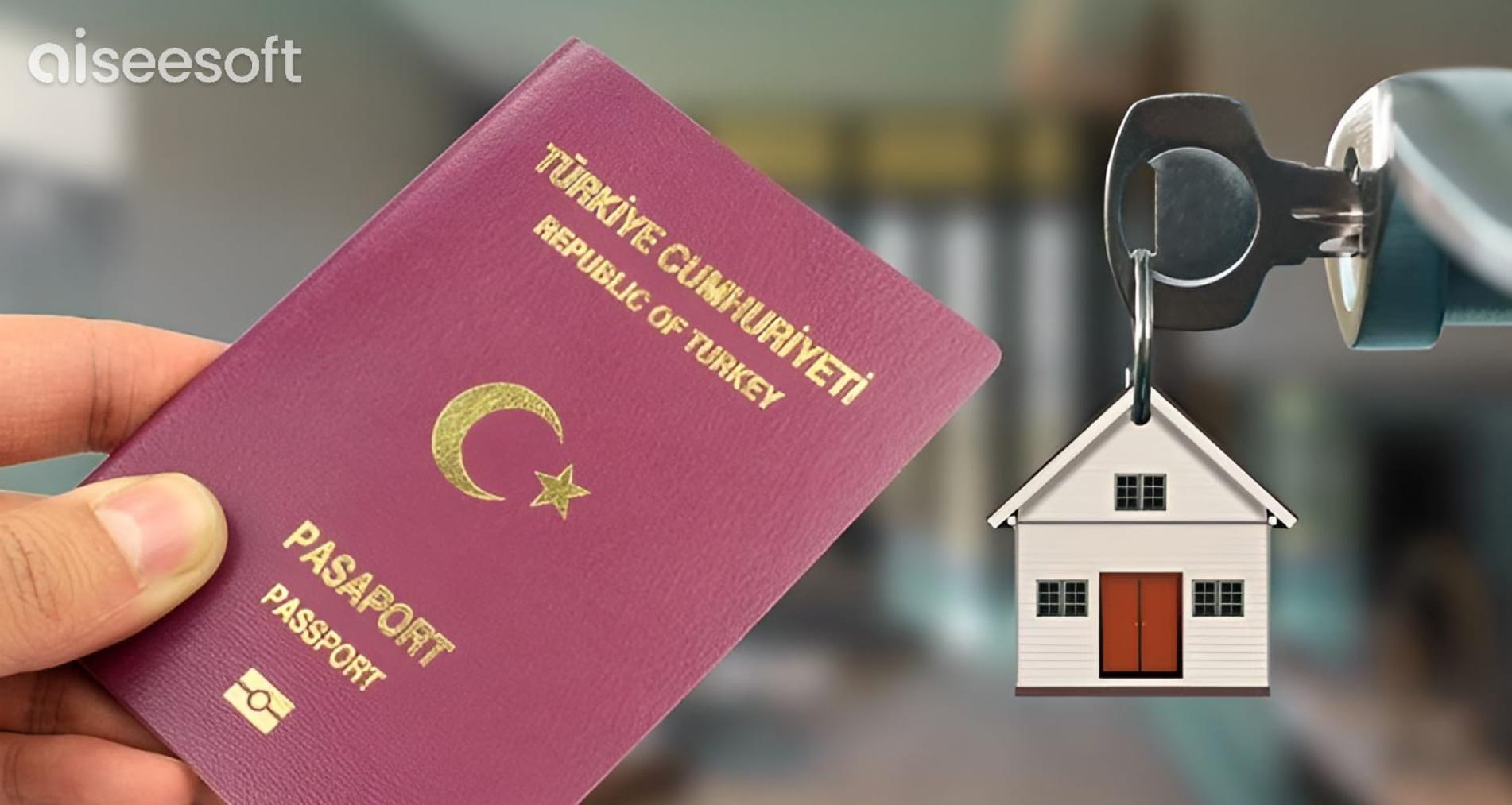Turkish language: history and current state.
Learning Turkish.
What are the requirements when buying real estate to obtain citizenship.
Analyzing the importance of learning Turkish for acquiring real estate and citizenship in Turkey, it is necessary to consider its historical development and current situation. The Turkish language has an ancient and rich history, influencing the socio-cultural and economic development of the country. The process of learning the Turkish language today has become key in the desire of many investors to purchase real estate in Turkey and obtain Turkish citizenship.

The History of the Turkish language: from antiquity to the present
The Turkish language is part of the Turkic language family, which has ancient roots dating back more than 5,000 years. The ancestral homeland of the Turkic peoples is considered to be Central Asia, where the first division of the ancestral Turkic language into various dialects took place. The first written monuments of the Turkic language appeared in the VII-VIII centuries AD, representing runic inscriptions on stones and trees.
Further development of the Turkic language is associated with the creation of state models, such as the Huns, Khazars, Avars, etc., where the Turkic language was official. From this period, the formation of separate Turkic language groups, including Turkish, began.
An important stage in the history of the Turkish language was the creation of the Ottoman Empire in 1299, when Turkish was established as the official language of the state. It should be noted that the Ottoman Empire existed until 1922, after which there was a reform of the alphabet and the transition to the Latin alphabet, conducted by Mustafa Kemal Ataturk in 1928-1930.
The current state of Turkish language learning

The modern Turkish language is a key element of the national identity of Turkey and other Turkic peoples. It is the official language of the Republic of Turkey, Cyprus, and Kosovo. A significant number of the Turkish-speaking population also lives in Germany, Bulgaria, Greece, France, Russia, the USA and other countries.
Alphabet and spelling
In 1928, under the leadership of Mustafa Kemal Ataturk, the alphabet was reformed. The Turkish alphabet was translated from Arabic to Latin, which simplified the process of learning and reading for the international community. This step helped to accelerate the process of Turkey’s adaptation to international standards and facilitated communication with other countries.
Grammar and structure
From the point of view of grammar, Turkish is agglutinative, which means that in it the addition of prefixes and suffixes to the root of a word changes its meaning. It has a relatively simple grammatical structure, which makes it more accessible for foreigners to study. Turkish has no grammatical gender and uses postpositional cases to express relations between words.
Language use
Modern Turkish is widely spoken in everyday life, education, business, media and government institutions. It is the only official language of the country, and all government and commercial documents are issued in Turkish.
Modern challenges and prospects
The modern Turkish language is facing challenges related to globalization, the influence of the English language, as well as rapid changes in technology and socio-cultural environment. Many young Turks prefer to use English in everyday communication and on the Internet.
However, the Turkish Government actively supports and encourages the study of the Turkish language as part of a strategy to preserve cultural heritage and strengthen national identity. Within the framework of this strategy, campaigns are being conducted to popularize the Turkish language, online courses are being created, and events are being held aimed at strengthening the position of the Turkish language as an international communication tool.
Turkish language and real estate: the path to citizenship
Recently, investing in real estate in Turkey has become attractive to many foreign investors, part of the attractiveness of which is the possibility of obtaining Turkish citizenship through the purchase of real estate. According to Turkish law, investors who have invested a certain amount in Turkish real estate have the right to request Turkish citizenship.
Learning Turkish becomes a critical aspect of this process. Language proficiency simplifies interaction with local authorities, contributes to the successful transaction and strengthens ties with the local population. Moreover, knowledge of the Turkish language increases the level of comfort and adaptation in the country.
How to Learn Turkish for Investors
Learning Turkish for investors can be carried out in various ways:
Language courses:
There are many language schools and training centers in Turkey offering individual and group Turkish language courses.
Online Resources and Applications: The Internet offers many online platforms with Turkish language courses, audio materials and grammar lessons.
Tutors:
Classes with private tutors allow you to pay attention to individual needs, speeding up the learning process.
Learning Turkish becomes an integral part of the strategy of successful acquisition of real estate in Turkey and obtaining Turkish citizenship. This effort becomes a key factor for integration into Turkish society and achieving investment goals. It is important to understand that in order to acquire citizenship when buying real estate in Turkey from 400,000 euros, a language exam is not conducted, but in all other cases it is necessary.

Learning Turkish: language courses
Let’s talk about choosing courses for learning Turkish. Consider various formats, including online platforms and Turkish language schools.
Learning Turkish through language courses is an effective and systematic way of mastering the language. These courses provide educational materials, structured lessons, as well as the opportunity to communicate with native speakers. Let’s take a closer look at what types of courses are available for learning Turkish.
1. Language schools in Turkey
There are many language schools in Turkey that specialize in teaching Turkish to foreign students. These schools offer intensive courses, including individual and group classes. The advantage of studying in Turkey is full immersion in the language environment, which contributes to rapid language acquisition.
2. Online platforms and courses
With the development of technology, learning Turkish online has become available. There are many specialized online platforms and websites offering Turkish language courses. These courses include educational materials, video tutorials, audio recordings and tasks for independent work.
3. Language courses in training centers
There are many training centers offering Turkish language courses in various countries. These centers can be either part of educational institutions or independent organizations. Courses in training centers are usually divided into difficulty levels, ranging from beginner to advanced, which allows students to choose the appropriate level for their initial knowledge of the language.
4. Tutors and private lessons
Private tutors provide a personalized approach to learning Turkish. These are individual classes focused on the specific needs of the student. Tutors can create an individual curriculum, taking into account the level of knowledge and goals of the student.
5. University courses
Many universities offer Turkish language courses as part of their study programs for international students. These courses usually cover the basics of grammar, vocabulary, listening and speaking practice.
Selection of courses and tips for successful learning of the Turkish language
1. Define your goals: Decide at what level you want to master the Turkish language and what skills you want to develop (speaking, writing, reading, listening).
2. Choose the appropriate format: Choose the training format that suits your employment level and preferences (online, offline, group or individual classes).
3. Structure the learning process: Divide the training into stages and set clear goals for each stage. This will help you assess progress and maintain motivation.
4. Practice and communication: In addition to training sessions, actively apply the acquired knowledge in everyday life, communicating in Turkish with native speakers.
5. Persistence and patience: Learning a language takes time and effort. Be patient and steadfast in your quest to achieve your goals.
The selection of suitable language courses and their consistent completion, combined with practice in real situations, will make the process of learning Turkish effective and interesting.


